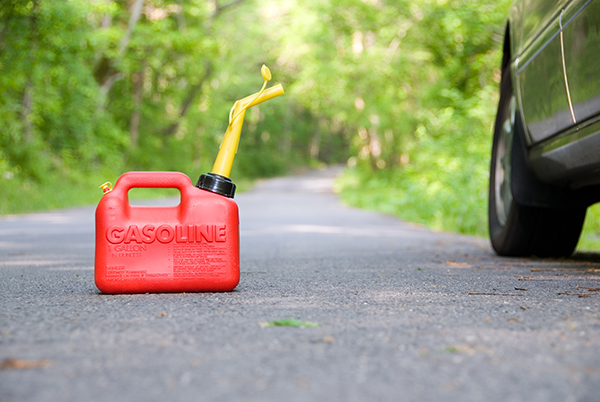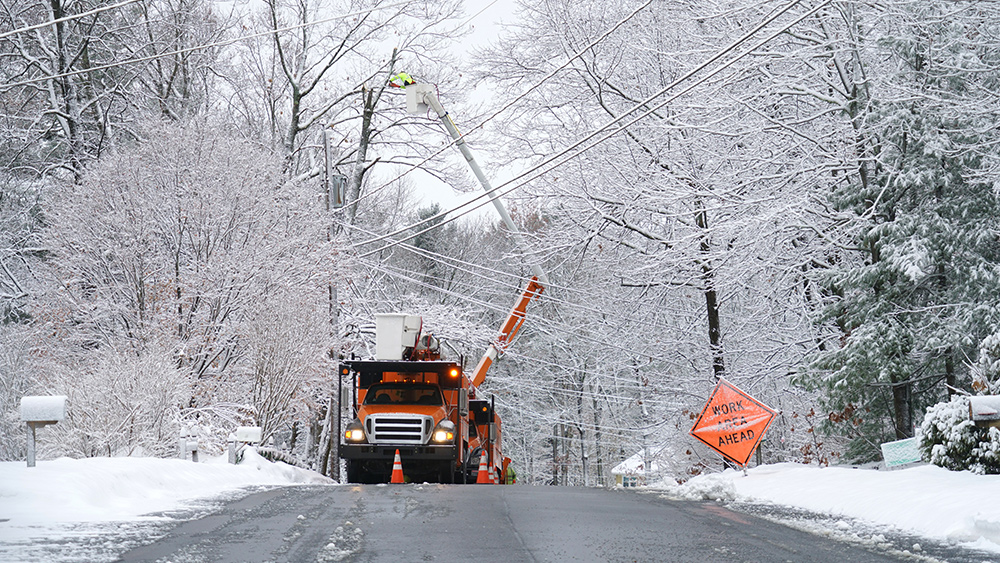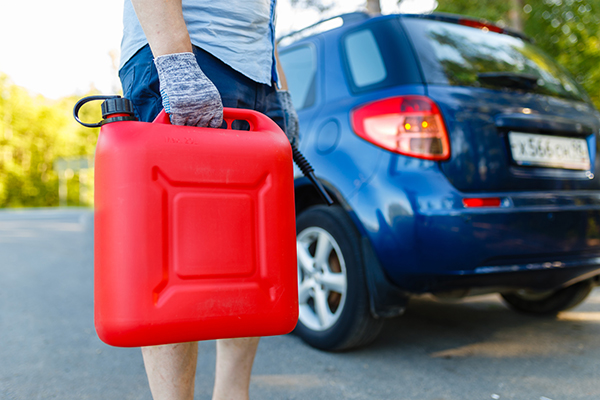
As a prepper, you need fuel like gasoline for your car, gasoline-powered tools or a backup generator.
When preparing for a long-term survival scenario, you should learn how to store fuel properly so it lasts a long time in your stockpile. (h/t to SurvivalSullivan.com)
Should you stock up on gasoline?
Gasoline is used to power various things like lawnmowers, cars and generators.
But while this liquid fuel is readily available, gasoline is among the worst for long-term storage compared to other liquid fuels. (Related: Survival essentials: 9 Types of fuel you may need in your stockpile when SHTF.)
If you use gasoline for your car or power tools, how can you store the fuel in your stockpile for a long time? The task isn't impossible, as long as you read up on proper fuel storage and learn about additives.
Tips for choosing the right type of gasoline for your stockpile
Before stocking up on a randomly chosen type of gasoline, choose the right blend or type of gasoline that suits your prepping needs.
While the principal factor that will affect the usability of your gas is time, the type of gasoline that you purchase will dictate how long it will last in your stockpile.
In the U.S., there are two common consumer grades of gasoline: Ethanol-gasoline blends and pure gasoline.
While pure gasoline isn't literally "pure," it is a solution that mostly contains gasoline.
The majority of gasoline sold at pumps throughout America today is ethanol-gasoline blends. While it is cheaper, ethanol-gasoline blends have a very short shelf life.
Human knowledge is under attack! Governments and powerful corporations are using censorship to wipe out humanity's knowledge base about nutrition, herbs, self-reliance, natural immunity, food production, preparedness and much more. We are preserving human knowledge using AI technology while building the infrastructure of human freedom. Speak freely without censorship at the new decentralized, blockchain-power Brighteon.io. Explore our free, downloadable generative AI tools at Brighteon.AI. Support our efforts to build the infrastructure of human freedom by shopping at HealthRangerStore.com, featuring lab-tested, certified organic, non-GMO foods and nutritional solutions.
Because all gasoline blends lose their volatility over time due to the degradation of their combustive compounds, this means gas can go bad. However, ethanol-gasoline is even worse because the ethanol separates from the gasoline itself until it floats on top like an oil slick.
Once that happens, the gasoline can't be used. You can't just swirl or mix it together because the ethanol compounds oxidize or decay faster than the gasoline itself.
Keep in mind that ethanol-gasoline blends will soak up water, so this means any condensation that forms in your storage containers will contaminate them worse than if you were storing pure gasoline.
From the outset, ethanol-gasoline blends will have a shelf life of between 30 to 90 days.
If you can find a supplier that still sells pure gasoline, the fuel has a longer average lifespan of about six months. While that is a significant improvement, it's not as long if you want to store large quantities of gas for your survival stockpile.
Once you decide on the type of fuel for your supply, get proper storage containers.
Use the right fuel containers
Storing gasoline in proper containers will help maximize fuel storage life.
Don't store gasoline in any container that is not approved for fuel, unless it is an emergency and you have no other choices.
When buying containers for your survival stockpile, look for gas cans and larger fuel storage drums. Certain specialized containers like fuel bladders are also an option.
Remember that gasoline is highly volatile and quite corrosive. This makes long-term storage in any container tricky business if you want the container to remain uncompromised and the gasoline uncontaminated.
For smaller quantities of fuel or portability, use plastic or metal gas cans. Look for vented gas cans if possible.
If you want to store massive quantities of fuel that can be fed directly into tools and vehicles using pumps, or distributed to smaller containers for various purposes, invest in a fuel storage drum.
Both storage options have advantages and disadvantages, but you should consider the material the storage container is made out of.
Plastic storage containers are corrosion-proof, meaning they will not rust.
Metal containers, even modern, high-quality ones, can rust. The rust will contaminate gasoline, making it cloudy. Fuel with rust can impair or even damage an engine. This is common in older, degraded or unlined steel containers.
Whichever container you choose, don’t store them in contact with concrete or masonry since this will exacerbate condensation problems.
Get pallets or a couple of scrap pieces of wood for your stockroom and place the gas storage containers on the pallets. Next, store the gas in the right conditions.
Ensure proper storage conditions for your fuel supply
The storage life of gasoline will be significantly affected by the temperature and overall climate where it is stored, and there are several crucial factors to consider.
First, extreme hot or cold temperatures will reduce the lifespan of gasoline.
Temperature fluctuations will also reduce the lifespan of fuel. Additionally, these fluctuations can greatly degrade the quality of the gas by contaminating it with water formed by condensation.
Wet, damp weather or being moved from a warmer to a colder area or vice versa will cause condensation to form inside the container.
Once enough water has contaminated gasoline, which is worse for ethanol-gasoline blends, it will cause problems in your engine or even make it hard to operate your vehicle.
To address these issues, you need to plan around this factor.
If the temperatures are generally mild and steady in your area, gasoline will usually have a longer shelf life. But if the temperatures are extreme or fluctuate regularly, gasoline will not last as long.
Store gas in your barn or a detached, enclosed garage. Don't store gas inside your home because the vapors are bad for your health.
Keep your fuel stockpile away from heaters, fireplaces, sunny windows, or sources of spark to prevent accidental fires.
Extend fuel life with stabilizers
If you have been to your local auto parts store, you may have noticed bottles of fuel stabilizers on the shelf. These additives claim that they can extend the shelf life of stored gasoline at least two to three times.
When used properly, these additives can indeed extend fuel shelf life.
Add a correct ratio of fuel stabilizer to a quantity of gasoline to significantly improve the storage life of fuel. It's best to do this when the gas is fresh, so keep in mind that even a fuel stabilizer won't make old gas like new.
You should also use the right kind of stabilizer because they are blend-specific, meaning that you will need a different fuel stabilizer for ethanol-gasoline blends and other fuel stabilizers for straight gasoline.
The stabilizers for ethanol-gasoline blends are not as effective as the ones for pure gas, but the former does help extend the shelf life of ethanol blends by several months.
To make fuel last as long as possible in your stockpile, get the right kind of stabilizer.
Note that stabilizers for pure gasoline can extend shelf life up to and even beyond one year. You still have to factor in this cost per gallon for any quantity you consider storing the time and aggravation savings alone make it well worth the investment.
Long-storage gasoline
If you are looking for a fuel that will last even longer than pure gasoline, you might want to look into long-storage gasoline.
This kind of fuel is available from a retailer of specialized long-storage gasoline. As the name suggests, this type of gasoline is manufactured in a variety of different octanes.
It is specially optimized for a long, stable storage life – typically at one year, although it can last up to two years in storage depending on the manufacturer. This fuel also doesn't require additives.
However, this type of gasoline isn't commonly advertised by gas stations or other suppliers you may see while on the road. To look for gasoline suppliers in your area, go online and include the search terms "long life gasoline" or "long storage life gasoline."
Keep in mind that this option may require you to drive a bit farther than the nearest gas station and some suppliers may require a minimum quantity purchase.
But long-storage gasoline is worth considering if you want to make things easier for yourself while stocking up on fuel before SHTF.
Store long-storage gas in a ventless container to help prevent contamination for easier rotation of your supply.
If you want to make fuel last for a long time in your stockpile, choose the right kind of fuel for your needs, get proper storage containers and store them properly.
Watch the video below to learn about the benefits of having a solar oven, which doesn't require fuel to cook food.
This video is from the Cahlen channel on Brighteon.com.
More related stories:
Prepping before SHTF: How to store fuel properly.
10 Ugly truths about long-term power outages and how to deal with them.
Prepping inventory: Which items are the right ones to overstock?
Sources include:
Please contact us for more information.



















